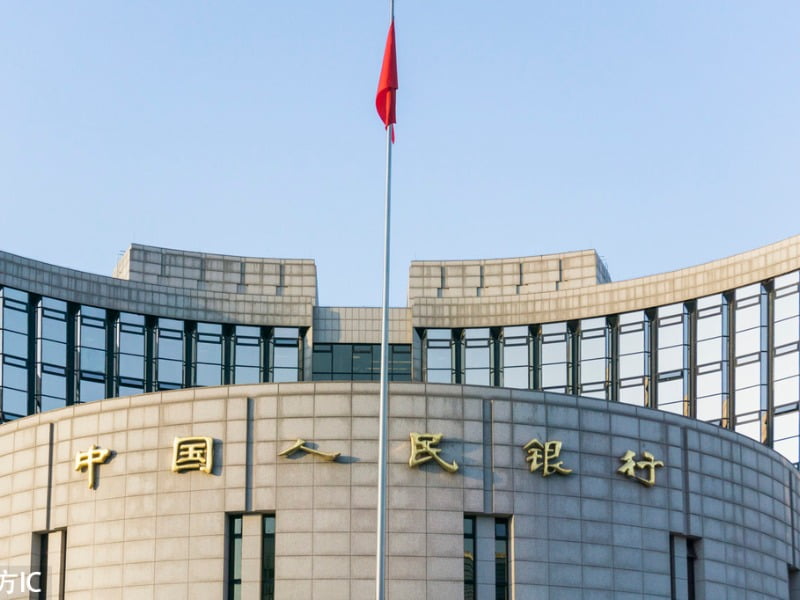China is set to launch a digital version of its currency, backed by its central bank. The new blockchain based central bank digital currency (CBDC) has the potential to rival the US dollar as the world’s reserve currency, opening a new front in the US-China trade wars.
There has been no official announcement, but in 2016 the Chinese central bank, the People’s Bank of China (PBOC), set up a research institute to explore the idea of a digital version of China’s currency. And earlier this month China’s National People’s Congress passed a new law on cryptography, clearing a path for the commercial use of the technology and the release of the new currency.

“The enactment of the law was necessary for regulating the utilisation and management of cryptography, facilitating the development of the cryptography business and ensuring the security of cyberspace and information,” said Xinhua, the Chinese national news agency.
The reference to the ‘cryptography business’ is seen as a reference to the use of the technology for the new digital currency, which senior Chinese officials have indicated will be released in 2020 – the law takes effect on 1 January.
In September, in an important step, the PBOC appointed Mu Changchun as head of the bank’s research institute. Mr Mu was formerly deputy director of POBC’s payments department. In August he was widely quoted as saying that the release of a government-backed digital currency was ‘imminent’.
Professor Joseph Liu, Associate Professor of IT at Monash University and a specialist in the use of electronic currencies and blockchain, says a Chinese backed cryptocurrency may have significant consequences for the global financial system.
“The US dollar dominates global financial markets,” Professor Liu told InnovationAsia. “A blockchain based currency backed by the Chinese Government has the potential to be a rival. China has indicated that it wants to be a leader in blockchain technology. This is a very clever way of doing it.”
In late October China’s President Xi Jinping explicitly endorsed blockchain, stating that the country needed to increase its research into the technology to “increase China’s influence and rule-making power in the global arena.”
His statement sent shares in companies employing blockchain technology – and the price of Bitcoin – soaring. China has announced blockchain initiatives in a number of industries, including supply chain, manufacturing and education.
Some observers have commented that blockchain technology suffers from too many performance constraints to be used on the scale that China envisages. Professor Liu disagrees. He said there are many types of blockchain, which has become a generic term describing a range of different electronic transaction ledgers.
“Bitcoin uses a decentralised version of blockchain which limits its efficiency. By using a more centralised method the planned Chinese currency will be capable of much higher volumes, perhaps as high as a million transactions a second,” he explained.
China’s embrace of the technology is something of an about-face. Until recently commentary on Chinese social media was critical of blockchain, but now Chinese state censors have started removing such posts. China now sees blockchain as a technology that will enable it to extend the government’s reach, both inside and outside of China.
That has some observers worried. Last week Cryptocurrency website coindesk.com published an anonymous interview with the Chinese bitcoin miner who fears the consensus and verification capabilities of blockchain will enable Chinese authorities to track financial transactions.
“China’s planned use of cryptocurrency terrifies the crap out of me,” said the interviewee, described as a ‘greybeard bitcoiner’.
“Crypto is just a technology, as nuclear fusion is just a technology: You can use it to create nuclear generators that might benefit humanity, or you can use it to create atomic bombs. We do need to think about ethics when it comes to these things.
“If the value is something a totalitarian state can take hold of and use to track every single person and what they’re doing, enforcing the strictest currency controls, then this is what they are going to do.”
China has already moved long way towards being a cashless society. Alibaba’s Alipay and other online payment platforms are widely used. “But they are not government controlled,” says Professor Liu. “A cryptocurrency issued by the central bank will enable the government to regulate and monitor all financial transactions.”
It will also make it much easier for China’s yuan to be used globally. That is perhaps the most significant aspect of the new currency. Like Facebook’s planned Libra it will circumvent the Western world’s financial system, which is based on the US currency.
Libra is now faltering as key backers get cold feet and many governments have expressed concern about their inability to regulate it.
But there will be no way for Western authorities to stop China’s new cryptocurrency, which is likely to become another weapon in China’s quest for global hegemony.
Do you know more? Contact James Riley via Email.
